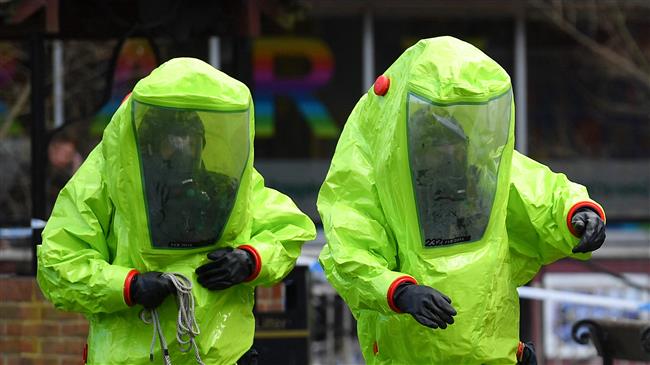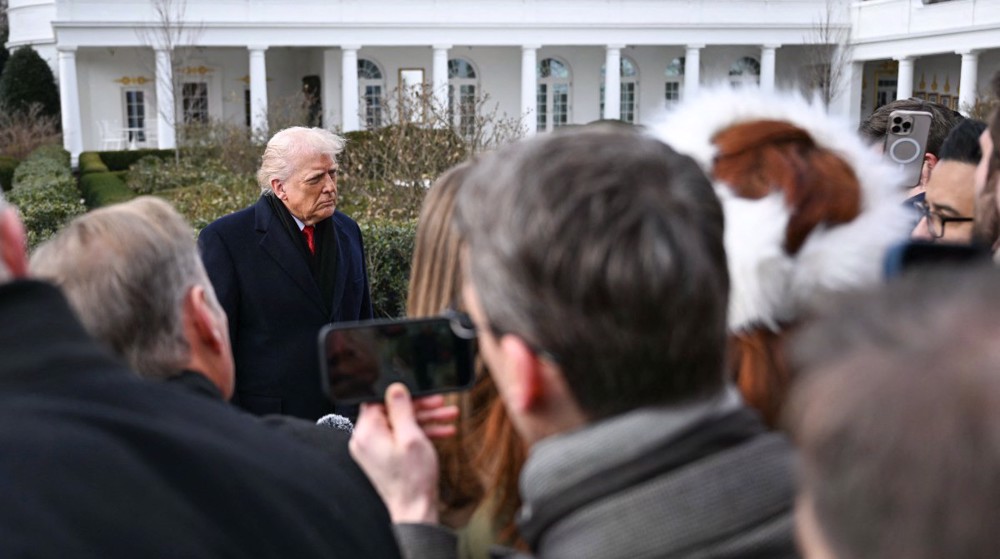UK investigates source of nerve agent in ex-Russian spy attack
British detectives are trying to find the source of the nerve agent they claim was used in the alleged attempted murder of a Russian former double-agent and his daughter.
British police on Monday confirmed that they had found a 66-year-old man and a young girl unconscious near a shopping mall in Salisbury, about 90 miles (145 kilometers) west of London on Sunday afternoon.
The pair was then announced by the UK media to be convicted Russian spy Sergei Skripal and his daughter. The man, Sergei Skripal, has an address in Salisbury.
Skripal is unconscious in a critical but stable condition in hospital along with his daughter.
"They are currently being treated for suspected exposure to an unknown substance. Both are currently in a critical condition in intensive care," Wiltshire Police, which is responsible for the Salisbury area, said in a statement.
British media and politicians have accused Russia of carrying out the incident, sparking an angry response from Moscow.
British Prime Minister Theresa May said on Thursday that "if action needs to be taken then the government will do that.”

Interior minister Amber Rudd described the attack as "brazen and reckless" and "attempted murder in the most cruel and public way.”
The minister went on to say that the UK "will act without hesitation as the facts become clearer.”
Rudd said that a policeman also became sick after rushing to their aid and remains in a serious but stable condition.
British police claimed on Wednesday that a nerve agent was used and that they were treating the incident as an attempted murder investigation.
"Police are now in a position to confirm that their symptoms are a result of exposure to a nerve agent," said the Metropolitan Police.
"Scientific tests by government experts have identified the specific nerve agent used which will help identify the source."
Accusing Skripal of spying for Britain, Russia arrested him in 2004 and sentenced him to 13 years in prison in 2006. However, the former spy was released four years later as part of a US-Russian spy swap.
He served with Russia's military intelligence before retiring in 1999. The spy then made his way to Russia’s Foreign Ministry and worked there until 2003.

After his arrest in Moscow, he confessed to the espionage charges and revealed that the British intelligence had first contacted him in 1995.
Apparently, London had paid Skripal more than $100,000 in exchange for information about the Russian military intelligence’s agents in Europe.
Moscow has since denied having any information about the former spy’s mysterious illness.
“We don’t possess any information about what could have been the cause [of Skripal’s illness], and what this could be connected to,” Dmitry Peskov, a Kremlin spokesman, told the media, calling the incident “tragic.”
Moscow has also accused British politicians and journalists of fueling anti-Russian sentiment.

Russian Foreign Ministry spokeswoman Maria Zakharova told reporters the story "was straight away used to boost an anti-Russian campaign in the media".
ICE shooting of protester in Minnesota
UN envoy: US responsible for ‘unpredictable consequences’ of aggression on Iran
UK, China push strategic cooperation as US undermines global order
Iran not opposed to dialogue but seeks diplomacy based on mutual respect: Qalibaf
Extreme poverty rate soars in UK: Report
Hezbollah official warns US strike on Iran could ‘trigger volcano’ in West Asia
Hamas never agreed to lay down arms in truce talks: Official
VIDEO | Iraqi political blocs denounce Trump’s interference in domestic affairs










 This makes it easy to access the Press TV website
This makes it easy to access the Press TV website